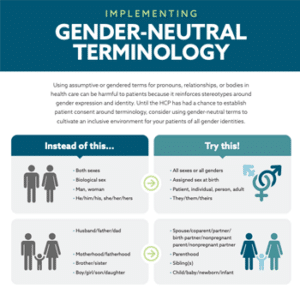
There is an urgent need to address health-related inequities in underserved and marginalized communities across the United States by providing education and sharing best practices at the root of systemic racism.
Most clinicians believe that health care disparities are related to the systems of care rather than their own decisions on when and how to provide that care. Understanding and eliminating unconscious bias are paramount to improving patient care. Walmart and CME Outfitters are tackling this issue as a guiding force for both Walmart health care professionals (HCPs) and team associates.
This educational hub serves as a foundation for addressing not only the barriers to equitable health care access, medications, and follow-up but also the stigma that creates inequity and impedes care for underserved and marginalized patients. The educational activities and resources in this hub are designed to shed light on this matter, help HCPs, team members, and associates recognize these issues, and empower them with tools to use in there everyday settings interacting with community members.

Addressing Bias and Disparities in the Care of Patients with Cardiometabolic Disorders: A Call to Action
In this CME Outfitters Snack, expert faculty review current data underscoring the existence of racial and ethnic disparities within cardiometabolic care, as well as how systemic racism and social determinants of health contribute to these health disparities. They also provide actionable steps for clinicians to take to achieve more equitable care within the field of cardiology.

Addressing Bias and Disparities in the Care of Pregnant and Postpartum People: A Call to Action
In this CME Outfitters Snack, expert faculty guide viewers through a thorough review of current data underscoring the existence of racial and ethnic disparities within maternal care, as well as how social determinants of health and systemic racism contribute to these health disparities. They also provide actionable steps for clinicians to take to achieve more equitable care within the field of maternal health.

Addressing Bias and Disparities in the Care of Patients with HIV: A Call to Action
In this CME Outfitters Snack, expert faculty guide viewers through a review of current data underscoring the existence of racial and ethnic disparities within HIV prevention and care, as well as how systemic racism and social determinants of health contribute to these health disparities. They also provide actionable steps for clinicians to take to achieve more equitable care for those living with HIV.

Addressing Bias and Disparities in the Care of Patients with Obesity: A Call to Action
In this CME Outfitters Snack, expert faculty guide learners through a review of current data underscoring the existence of racial and ethnic disparities within obesity care, as well as how systemic racism and social determinants of health contribute to these health disparities. They also provide actionable steps for clinicians to take to achieve more equitable care within the field of obesity.

Addressing Bias and Disparities in the Care of Patients with Cancer: A Call to Action
In this CME Outfitters Snack, expert faculty guide learners through a thorough review of current data underscoring the existence of racial and ethnic disparities within cancer care, as well as how systemic racism and social determinants of health contribute to these health disparities. They also provide actionable steps for clinicians to take to achieve more equitable care within the field of oncology.
Resources
Understanding how implicit bias impacts our lives is a theme running through each of the Diversity and Inclusion activities. We all have biases; we can learn more about our biases by taking the implicit association test (IAT). This first step in understanding bias can help us unravel the myths we may have learned and move forward with compassion and cultural humility to help address health disparities today.
Over 35 million Americans are food insecure, which is associated with nearly $53 million in health care costs. As stated in Racial Disparities in the Care of Patients with Cardiometabolic Disease, because food insecurity relates to higher rates of obesity, diabetes, and other health conditions, assessing patients for food insecurity is one of the most important tools physicians can use. Access these links to view this simple 2-question survey and other tools available to assess food insecurity in patients of all ages.
Pronouns are the language we use in order to refer to other people. In order to avoid assuming someone’s pronouns based on factors like appearance, we should routinely share our pronouns and ask for the pronouns of others. Learn more about common pronouns, the harm of assumptions, pronouns in the workplace.
An ally is one who knows and cares about an LGBTQIA person. For some, being an ally will be as easy as breathing. For others, it will take intentional effort. To learn more about LGBTQIA+ allyship, download this free PDF guide.
 Using assumptive or gendered terms for pronouns, relationships, or bodies in health care can be harmful to patients because it reinforces stereotypes around gender expression and identity. Until the HCP has had a chance to establish patient consent around terminology, consider using gender-neutral terms to cultivate an inclusive environment for your patients of all gender identities. Learn more about the intersections of gender, language, inclusivity, and health equity, as well as suggested language swaps.
Using assumptive or gendered terms for pronouns, relationships, or bodies in health care can be harmful to patients because it reinforces stereotypes around gender expression and identity. Until the HCP has had a chance to establish patient consent around terminology, consider using gender-neutral terms to cultivate an inclusive environment for your patients of all gender identities. Learn more about the intersections of gender, language, inclusivity, and health equity, as well as suggested language swaps.
